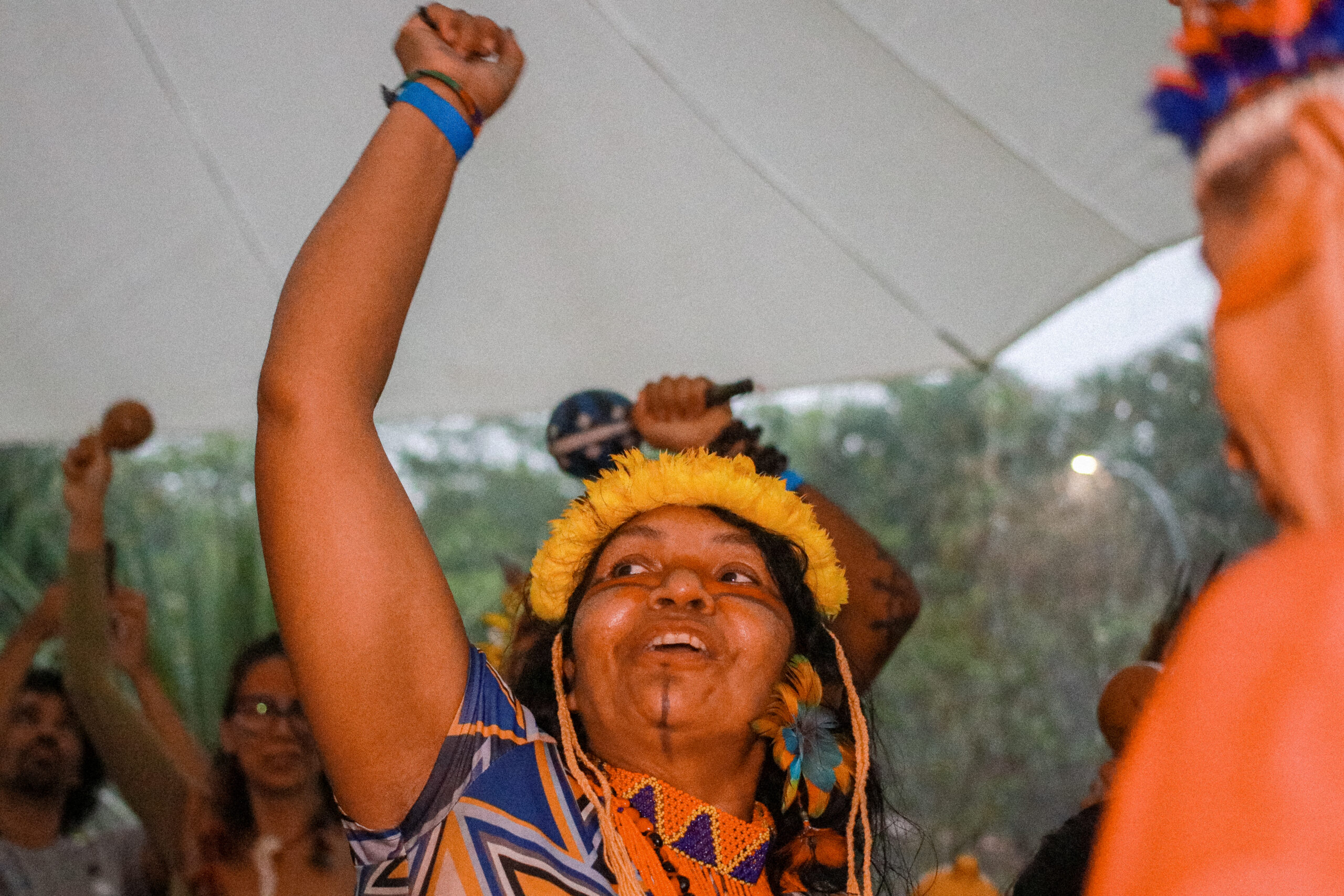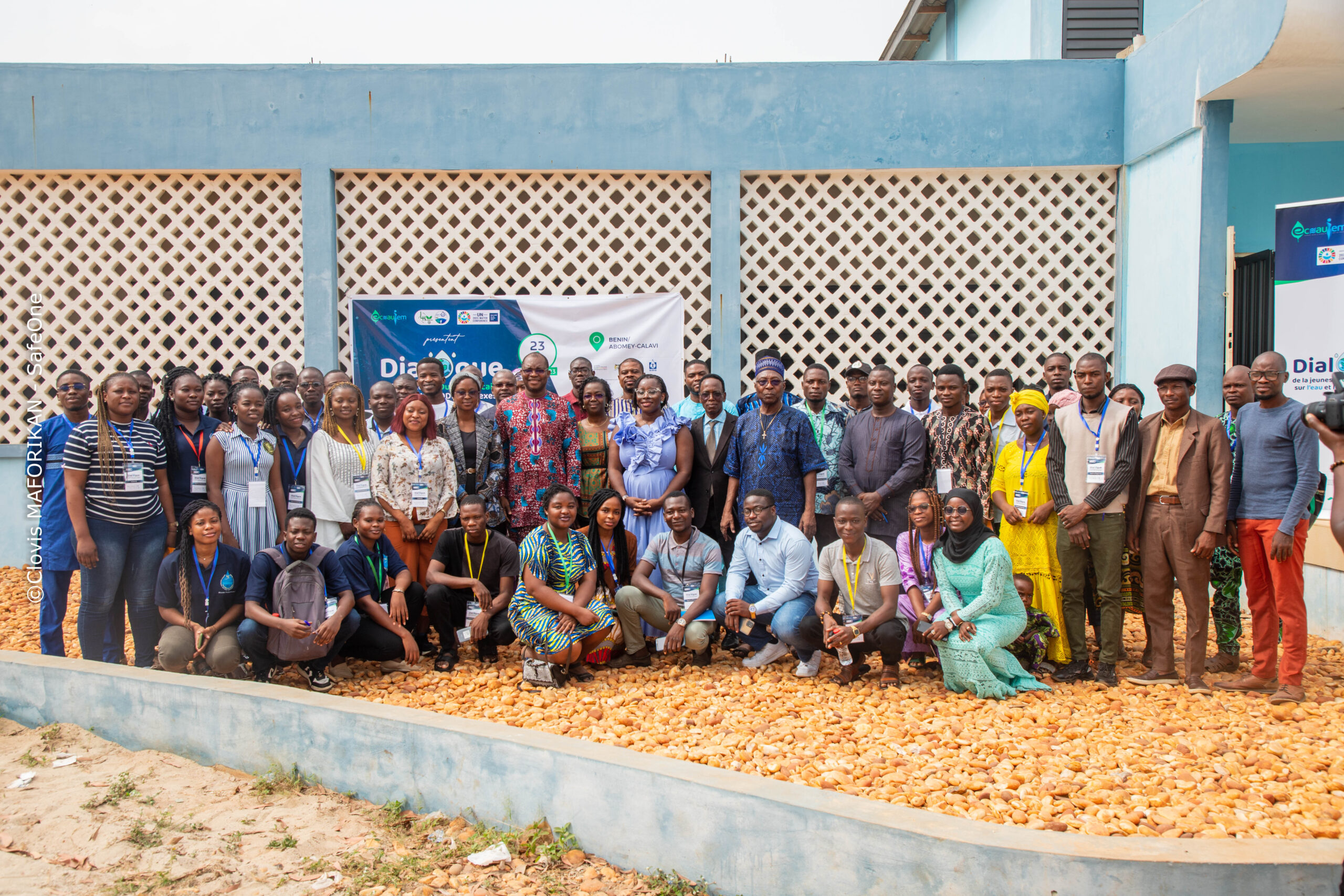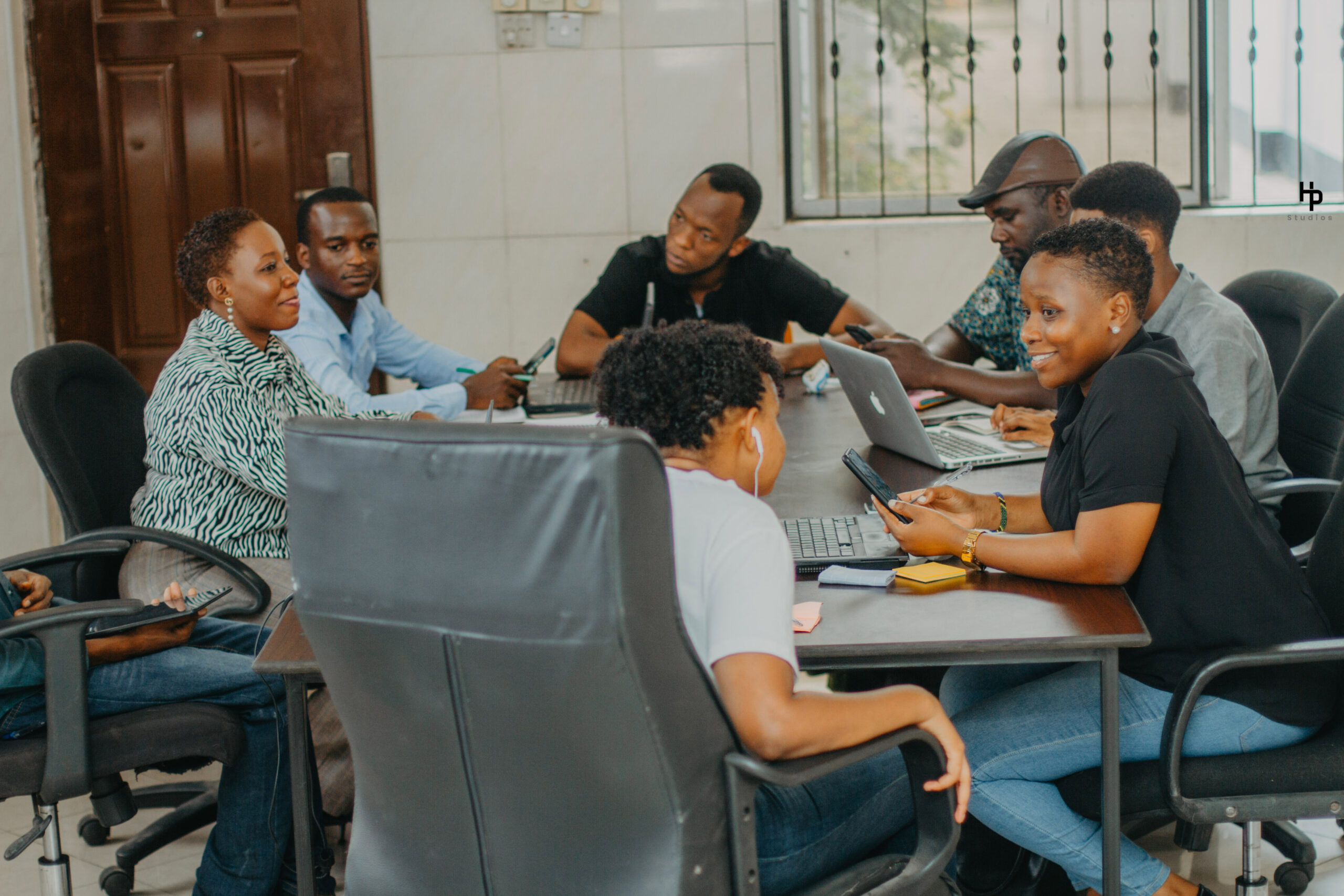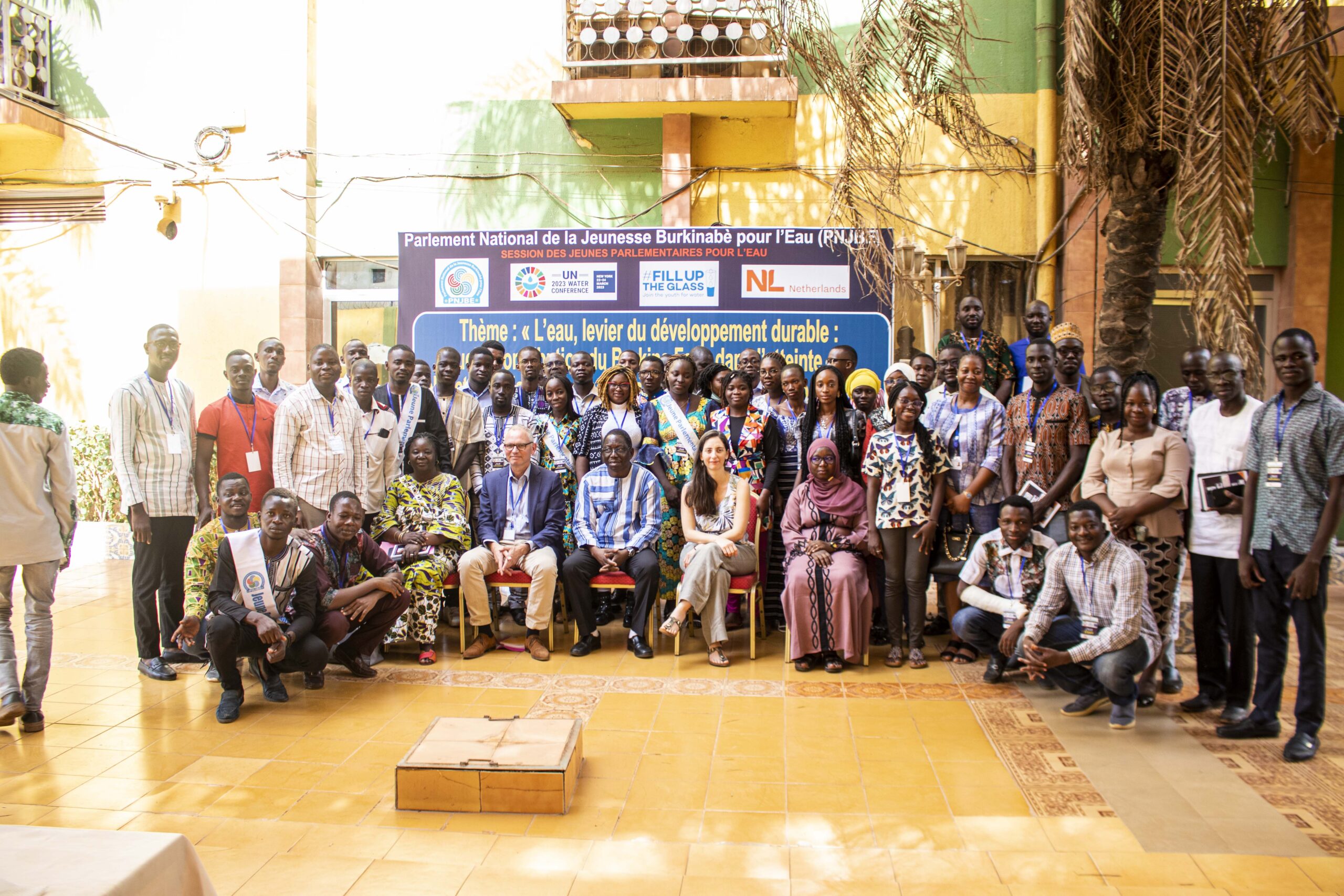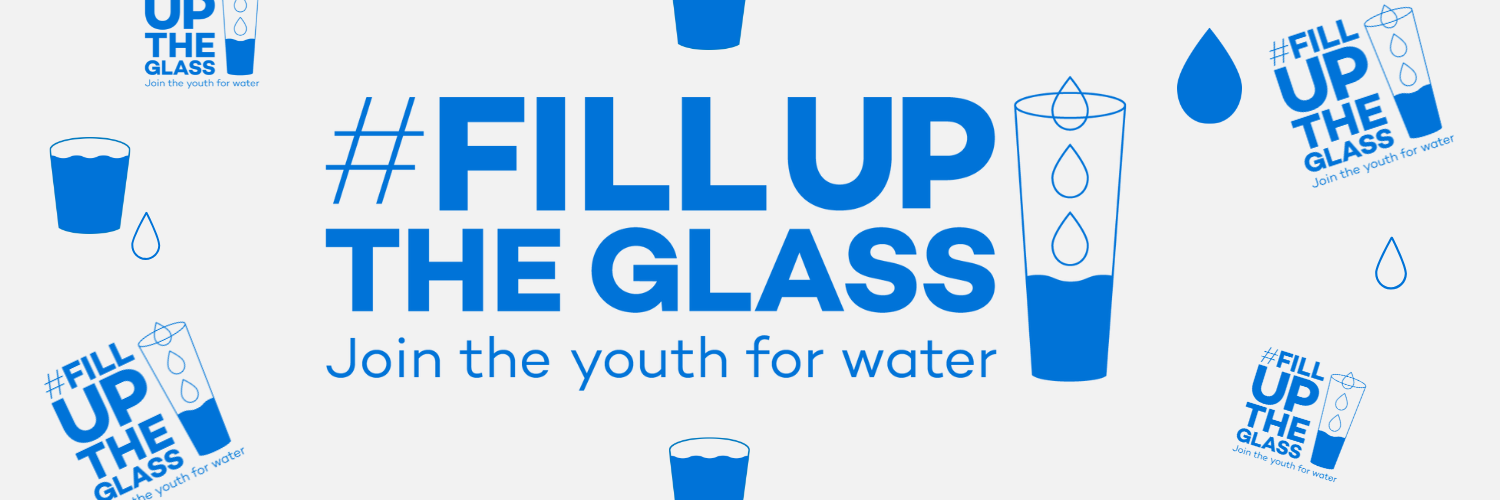Empowering civil society and youth to influence change has been a central element of the International Secretariat for Water (ISW) strategy for over 30 years. For the UN 2023 Water Conference, ISW mobilized and promoted the voices of changemakers, particularly those most affected by water issues, including women, youth, and indigenous communities.
As an integral part of the ISW youth & civil society mobilisation program towards the UN 2023 Water Conference, a call for proposals was launched to provide financial and technical support to eight (8) coalitions of youth-led organizations of the Global Youth Movement for Water to create and facilitate a series of regional workshops. One of the main goals of these dialogues was to allow for a greater number of youths to have their voices heard during the UN2023 Conference.
These events gather more than 1’200 young people from eight different geographical areas around the world, both physically and virtually. They influenced local youth leaders and decision-makers on the importance of this conference, identified key priorities for the region and gathered commitments for the Water Action Agenda.
- Águas Resilientes – South America (Brazil)
The goal was to engage, inform, and mobilise young people in Brazil and in the rest of South America in addressing the challenges of water, sanitation, and hygiene in their region. The mobilisation involved various institutions such as the Water and Sanitation Company of Rio de Janeiro – CEDAE, the Water and Sanitation Company of Jundiaí, São Paulo, the Basin Agency of São Paulo – PCJ, and the Rural Federal University of Rio de Janeiro. Distinguished guests included the Minister of Human Rights of Brazil, the Minister of Environmental and Climate Change, and the Youth Secretary of Brazil, Mr. Ronald Sorriso.
The dialogue featured panels and workshops on topics related to water, sanitation, and youth engagement. The impact of the mobilisation was extensive, reaching a wide range of public, private, and NGO institutions in Brazil. The organisers are now planning to launch a program of Ambassador Youth for Water, aiming to continue the impact of their advocacy document and mobilisation efforts. The project has the potential for replication and the team is seeking partners, including the government of Brazil, to further their goals.
- Red de Jóvenes por el Agua Centroamérica – Latin America (Costa Rica, Nicaragua, Ecuador)
The dialogues in Costa Rica, Nicaragua, Ecuador, and the virtual platform aimed to raise awareness among young participants about the UN WATER Conference and SDG6 challenges in their respective countries and regions. These mobilisations facilitated intergenerational dialogues, workshops, and discussions on youth participation and the role of communities, academia, NGOs, and other stakeholders in the water sector. The events resulted in the creation of declarations that serve as advocacy tools and were presented to authorities during the conference and in follow-up projects. The declarations address various water-related topics and incorporate inputs collected during the events. The networks organising these dialogues have expanded and are continuing their work, promoting interaction with other sectors and advocating for water-related issues.
- Women for Water Climate and Environment – West Africa (Benin)
This regional dialogue aimed to inform and empower participants on various water-related topics in West Africa. The mobilisation included activities such as presentations on the state of SDG 6 in West Africa, discussions on water governance and integrated water resource management, and sessions on water, sanitation, and hygiene in the region. The topics explored also included financing strategies for water projects, exploring the nexus between water and energy, and the importance of entrepreneurship and innovation in achieving SDG 6. The outcome of the mobilisation was the development of an action roadmap for West African youth to contribute to the water-related goals of the 2030 Agenda. This project facilitated networking, capacity building, and the identification of sustainable and scalable solutions and innovations in the water sector. Additionally, it emphasised the inclusion of youth in decision-making processes and the promotion of a green economy and climate resilience. Future plans include capacity-building activities, awareness campaigns, and advocacy efforts to improve water policies and strategies and implement innovative projects identified during the dialogue.
- North American Youth Parliament for Water – North America (USA, Canada)
The goal of Youth Forums for the Columbia River was to mobilise and empower local youth and gather their voices to create a report on their vision for the future of the Basin. This dialogue brought together 59 participants from Oregon, Idaho, Washington, and British Columbia, including high school and college students, young professionals, and Indigenous community-focused organisations. Five speakers presented on various topics related to water, including the Global Youth Movement for Water, the Columbia River Treaty negotiation history, and the work of organisations monitoring water quality and supporting salmon reintroduction in the Basin. Local decision-makers attended to observe the conversations of the youth participants. The mobilisation resulted in the creation of a report titled “Youth Vision for the Columbia River” which was brought to the attention of local decision-makers and high-level negotiators during the ongoing Columbia River Treaty renegotiation process. As a result, partnerships and continued collaborations to further elevate youth voices in decision-making spaces over the Columbia River Basin were also established.
- African Youth Parliament for Water – Africa (Senegal, Egypt, Tanzania, South Africa, Cameroon, DRC, CAR, Chad, Congo Brazzaville)
The main objective of these dialogues was to gather feedback and perspectives from various sectors across Africa regarding African youth policies, their implementation and their relevance for the water sector. Five main events were conducted, along with sub-events in Central African countries to increase reach. The events involved 81 direct participants, and workshops were held to discuss priorities, successful actions, shortcomings, and solutions related to youth policies and water related challenges. Key organisations and stakeholders were included, and feedback was collected and analysed from each African region. The discussions provided a basis for a mapping report that is to be presented as a proposed solution to African governments. It also aimed to promote partnerships between youth parliaments for water and local governments for the implementation of youth policies. The dialogue highlighted the importance of a solid database of water-impacting youth organisations and the formation of effective coalitions to work closely with governments on youth policies.
- Mediterranean Youth for Water Network – Middle East and North Africa (Tunisia, Palestine)
These regional dialogues addressed the main challenges faced by youth in the Mediterranean area related to SDG 6. Workshops and online sessions were organised in Palestine, in Tunisia, and online. The events focused on addressing challenges in various areas such as water security, climate action, youth engagement in decision-making, and the water, food, and energy nexus. The project had a positive impact as participants gained knowledge about the UN2023 Water Conference, connected with each other and stakeholders in the region, and became aware of their right to participate in water-related decision-making processes. The mobilisation also highlighted the interconnections between SDG 6 and other sustainable goals, such as climate change, health, peace, and development. An action plan was established to ensure the sustainability of the project’s results and to continue raising awareness and implementing activities related to water security.
- Central Asia Youth for Water Network – Central Asia (Afghanistan, Kazakhstan, Kyrgyzstan, Tajikistan)
The goal of the youth events conducted by the CAY4W Network in Central Asia and Afghanistan was to enhance the capacity and mobilization of youth in addressing water-related challenges and promoting climate action. The series of activities included a regional training followed by three national workshops in Kazakhstan, Kyrgyzstan, and Afghanistan, as well as post-UN2023 Water Conference reflection activities. These dialogues aimed to provide youth with knowledge about the UN2023 Water Conference, water governance, and climate change issues, while empowering them to take local action and establish youth desks in ministries. With approximately 150 young participants, the mobilisations successfully engaged youth from different regions, fostering networking and showcasing their passion and commitment to addressing water and climate challenges in the region.
- National Parliament of Burkinabe Youth for Water – Burkina Faso
To contribute to the realisation of the UN Decade for Action on Water for Sustainable Development (2018-2028) and achieving SDG 6, the National Parliament of Burkinabe Youth for Water (PNJBE) organised its Ordinary Session on March 17, 2023, in Ouagadougou. In preparation for the UN2023 Water Conference, this dialogue aimed to engage young parliamentarians in decision-making processes, address their concerns, and influence water sector policymakers. It gathered approximately fifty young parliamentarians representing all thirteen regions of Burkina Faso. This significant gathering entailed the creation of a declaration that advocated for universal access to water, hygiene, and sanitation, as well as the opportunity to hear from key stakeholders responsible for implementing SDG 6. By serving as a platform for civic dialogue, citizen engagement, governmental accountability, and advocacy, the session of the PNJBE effectively promoted water as a catalyst for sustainable development. The policy declaration of the PNJBE was brought to the UN2023 Water Conference.
The results of each regional dialogue were presented at the UN2023 Water Conference and helped connect local youth movements to the global conference. The ISW financially supported a representative from each event to attend the conference in New York to share the outcomes of the discussions and bridge the connection between the local and regional dynamics and the global water fora.
The Global Youth Movement for Water now has a significant role to play in ensuring that the outcomes of the conference are translated into concrete actions implemented at the country and regional levels. The importance of continuing to support grassroot mobilization and community engagement to create local-level impact was strongly mentioned by delegates during the UN conference..
Youth play a crucial role in holding decision-makers accountable for the implementation of local actions they have committed to during the UN Water Conference. Their involvement and vigilance are vital in ensuring that decision-makers follow through on their commitments and take concrete steps to address water-related challenges at the local level. By actively engaging and monitoring progress, youth can contribute to the effective and timely execution of these actions, thereby driving positive change and advancing sustainable water management practices.
The #FillUpTheGlass campaign will continue to unite the actions and communication efforts of the organizations of the GYMW with the hope of catalyzing a water-secure world for all.
To read more on the overall role and impact of ISW’s program as the official umbrella organisation for youth for the UN2023 Water Conference:
To learn more about the #FillUpTheGlass campaign: https://filluptheglass.org/
To mobilise your community for Water Action: https://filluptheglass.org/wp-content/uploads/2023/03/Guide-to-mobilizing-your-community-for-water-action.pdf


